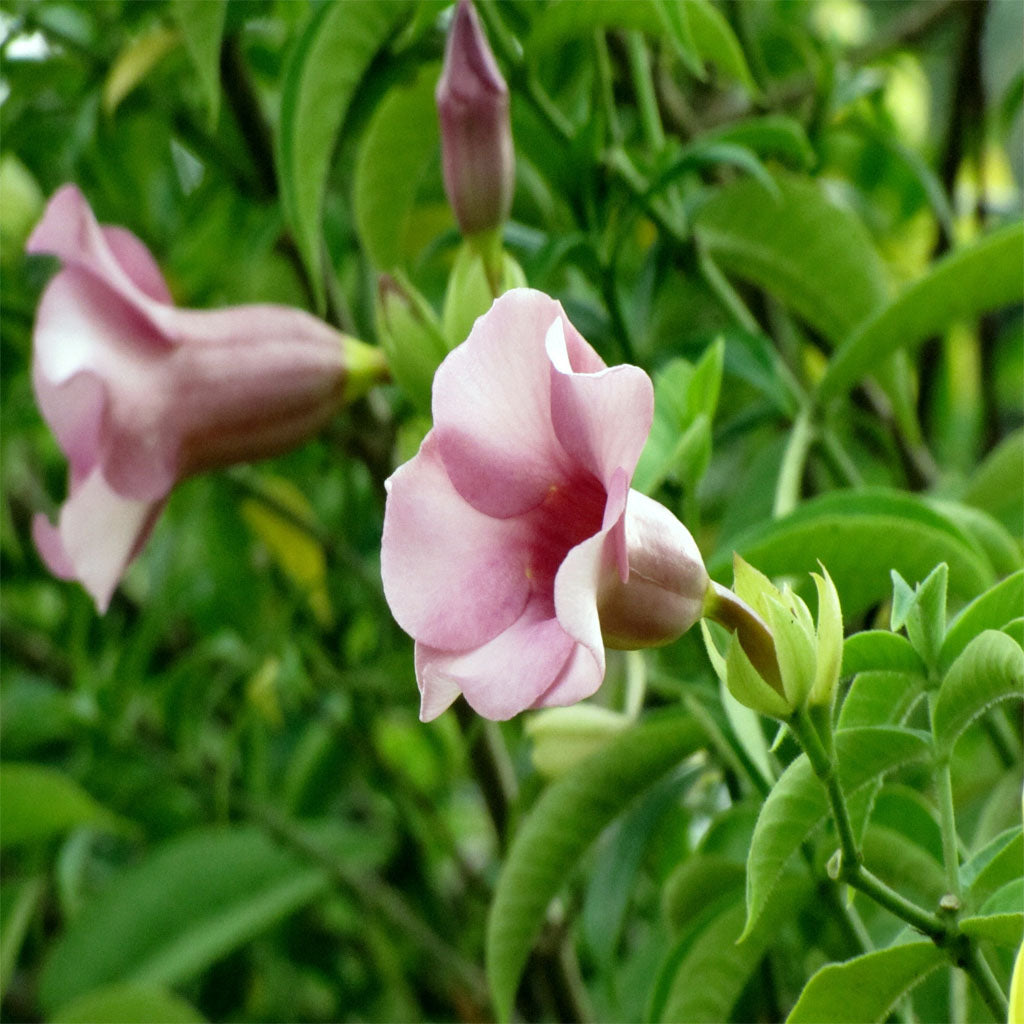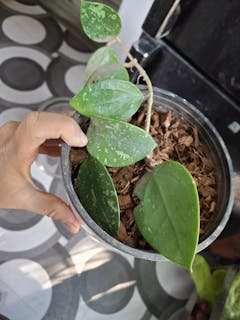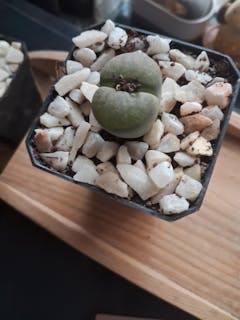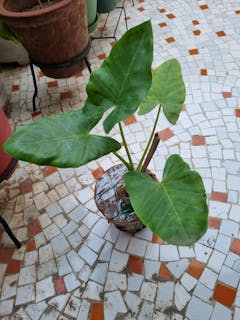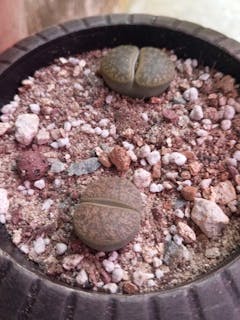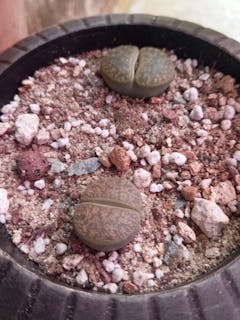Purple Allamanda
Family
Apocynaceae
Origin
Brazil
Description
Pretty violet-shaded flowers are trumpet-shaped, very showy and appear all year in consistently warm climates. This vine has thin, arching, twining woody branches. The bark is brown, furrowed on mature stems and yellow-green on younger branches. These emit a milky irritating sap when broken. The leaves are elliptical in shape, slightly fuzzy, green to yellow-green and appear opposite to one another on the stems. The fruits are spiny seed capsules.
Environment
In temperate regions, allamanda may be grown outdoors in containers during the summer months and brought into a greenhouse or conservatory to over-winter. They require full sun and fertile, well-drained, acidic soil for best growth. Though somewhat drought tolerant, they look and grow best with evenly moist conditions.
Landscape Use
Purple allamanda makes a wonderful, ever-blooming specimen plant. Use it to impart a tropical feeling in frost-free landscapes and container gardens.

